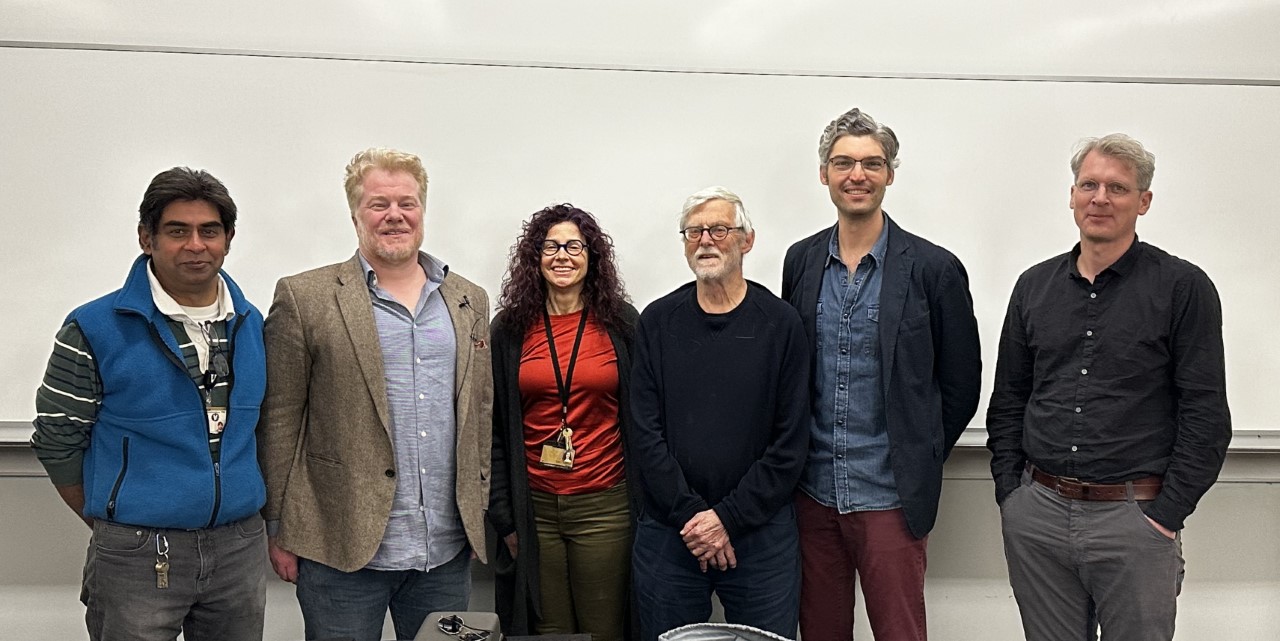Neuroscience

The goal of the graduate program in neuroscience is to form world-class scientists who have the broad conceptual knowledge to understand the important issues of the field, and the know-how and hands-on experience to resolve these issues. The program introduces students to current research strategies aimed at understanding how brain structure and function produces behavior and cognition.
Faculty in the neuroscience program are broadly concerned with the neural bases of perception, action, and cognition, as well as with the plasticity and evolution of the underlying brain systems. Faculty use neurophysiological, neuroanatomical, neurochemical, functional imaging, psychophysical, and computational methods. Particular areas of expertise include neural plasticity, sensory system organization with a special emphasis on vision and visual processing, object recognition, attention, and decision making.
View list of Neuroscience Faculty here
Training in neuroscience includes both course work and intensive laboratory experience with one or more faculty members. Students are required to demonstrate proficiency in quantitative methods and experimental design and to participate in weekly seminars in neuroscience. Another important goal of this seminar series is to foster oral skills of the trainee through regular presentations. Training is also enhanced by vibrant colloquia series sponsored by the Vanderbilt Vision Research Center (VVRC) and the Vanderbilt Kennedy Center for Research on Human Development, giving trainees the opportunity to meet preeminent researchers from around the world. From the beginning of the first year, research experience is emphasized in the laboratory of one or more preceptors. Course work is concentrated in the first two years of graduate studies, and includes courses on Systems Neuroscience, Cognitive Neurosciences, Visual Neuroscience, Statistics, and Methods courses in Neurophysiology and Imaging. In their third year, students are expected to demonstrate their proficiency and knowledge in their field of research before they can advance to their dissertation proposal, in the fourth year of study, and their dissertation research in their fifth year.
Students use state-of-the-art research facilities in Wilson Hall, which include computer-based behavioral testing equipment; eye-tracking systems, visual image processing hardware and software; physiological recording laboratories; fully-equipped neuroanatomical facilities; photographic dark-rooms; electronics shop; and animal housing for nonhuman primates and other exotic species. Cognitive neuroscience research is carried out using research-dedicated high-fields fMRI scanners in the Vanderbilt Institute of Imaging Science (VUIIS), ERP systems in VUIIS and the Vanderbilt Kennedy Center, and a trans-cranial magnetic stimulation (TMS) system in Wilson Hall. Full-time VVRC, CICN, and departmental staff, including animal care technicians, computer programmers, illustrators, and administrative assistants, provide exceptional support for neuroscience research. The neuroscience faculty, post-doctoral fellows and students enjoy excellent working relationships with researchers affiliated with other units within the University, including the Medical School, School of Engineering, and the Vanderbilt Kennedy Center.
For more information, please contact the program director: Kari Hoffman

